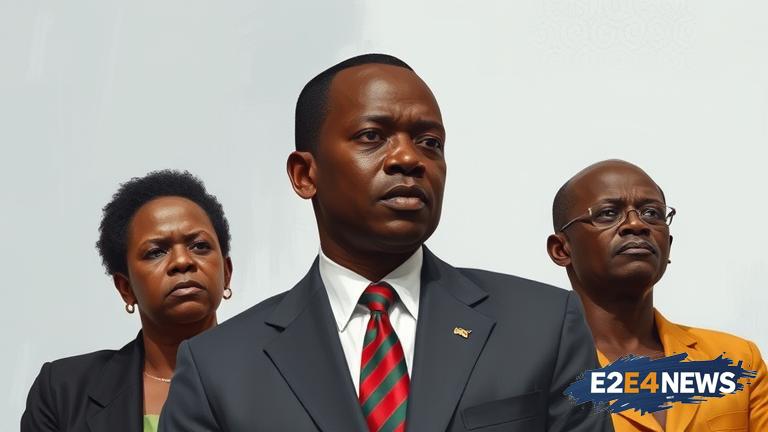A recent petition filed in a Kenyan court has thrown a spanner in the works of President William Ruto’s plan to compensate victims of past protests. The petition, which was filed by a group of concerned citizens, challenges the legality and fairness of the compensation plan. According to the petitioners, the plan is discriminatory and does not provide adequate compensation to all victims. The petition has sparked a heated debate on the government’s handling of the issue, with some arguing that the plan is a step in the right direction, while others claim that it is a mere tokenism. The compensation plan was announced by President Ruto earlier this year, with the aim of providing financial assistance to victims of past protests, including those who were injured or lost loved ones. However, the petitioners argue that the plan is flawed and does not take into account the needs of all victims. They claim that the plan is biased towards certain groups and does not provide adequate compensation to others. The petition has also raised questions about the government’s commitment to addressing the root causes of the protests, rather than just providing compensation to victims. Some have argued that the government should focus on addressing the underlying issues that led to the protests, rather than just providing a quick fix. Others have praised the government for taking steps to address the issue, but have called for more to be done to ensure that justice is served. The court is expected to hear the petition in the coming weeks, and a ruling is expected to be made soon. The outcome of the case is likely to have significant implications for the government’s handling of the issue, and could potentially lead to changes in the compensation plan. The petition has also highlighted the need for greater transparency and accountability in the government’s handling of the issue. Many have called for greater clarity on how the compensation plan will be implemented, and how victims will be identified and compensated. The government has faced criticism for its handling of the issue, with some arguing that it has not done enough to address the needs of victims. The petition has also raised questions about the role of the judiciary in ensuring that justice is served. Some have argued that the court should play a more active role in ensuring that the government is held accountable for its actions. Others have argued that the court should exercise restraint and allow the government to handle the issue. The case has also highlighted the need for greater dialogue and engagement between the government and civil society organizations. Many have called for greater collaboration between the government and civil society organizations to ensure that the needs of victims are met. The petition has also sparked a wider debate about the government’s commitment to human rights and the rule of law. Some have argued that the government has not done enough to protect the rights of citizens, and that the compensation plan is a mere tokenism. Others have praised the government for taking steps to address the issue, but have called for more to be done to ensure that justice is served. The case is likely to have significant implications for the government’s handling of human rights issues, and could potentially lead to changes in the way that the government addresses these issues. The petition has also highlighted the need for greater accountability and transparency in the government’s handling of human rights issues. Many have called for greater clarity on how the government will ensure that human rights are protected, and how victims of human rights abuses will be compensated. The government has faced criticism for its handling of human rights issues, with some arguing that it has not done enough to address the needs of victims. The petition has also raised questions about the role of the international community in ensuring that human rights are protected. Some have argued that the international community should play a more active role in ensuring that the government is held accountable for its actions. Others have argued that the international community should exercise restraint and allow the government to handle the issue.



